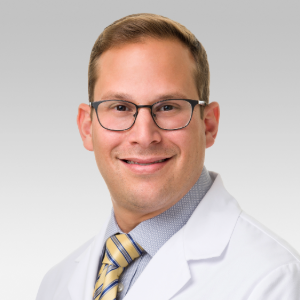
March 2025 Newsletter

March 2025 Newsletter

Faculty Profile
Jeremy Lavine, MD, PhD, is an assistant professor of Ophthalmology and of Medicine in the Division of Rheumatology. His laboratory investigates the role of the innate immune system, specifically macrophages, in ocular health and disease. Lavine’s clinical focus includes the diagnosis, medical and surgical management of retinal detachment, macular degeneration, diabetic retinopathy, retinal vein occlusion and secondary intraocular lenses. He is a member of the Center for Human Immunobiology and the Robert H. Lurie Comprehensive Cancer Center of Northwestern University.
What are your research interests?
Our lab focuses on the role of the innate immune system, specifically macrophages, in ocular health and disease. Our two main projects investigate the role of macrophages in neovascular age-related macular degeneration (AMD) and the function of retinal perivascular macrophages in health and during inflammation.
Neovascular AMD develops when blood vessels grow from the back of the eye (the choroid) into the retina, resulting in retina destruction and vision loss. Current therapy focuses upon inhibiting blood vessel growth by blocking vascular endothelial growth factor (VEGF), but 33 percent of patients have sub-optimal responses. Macrophages are commonly present in surgically excised neovascular growths during neovascular AMD and in mouse models.
Our lab seeks to understand how these macrophages promote blood vessel growth during neovascular AMD so that they can be targeted with therapy. Retinal perivascular macrophages are poorly characterized cells that exist within the vascular sheath, as constituents of the blood-retina barrier, in the retina. We have shown that these cells express many pro-chemotactic genes compared to other ocular macrophages and are focused upon understanding how retinal perivascular macrophages regulate immune cell extravasation across the blood-retina barrier.
What is the ultimate goal of your research?
The ultimate goal of our research is to find new therapies beyond anti-VEGF eye injections. Anti-VEGF injections are used for neovascular AMD to stop blood vessel growth and retinal swelling that distorts vision from diabetes. By understanding macrophage heterogeneity during neovascular AMD, we hope to develop anti-macrophage-based therapeutics that will target macrophages that stimulate blood vessel growth without causing immunosuppression. In diabetes, retinal swelling develops because of blood-retina barrier leakiness. By understanding the function of perivascular macrophages, which are components of the blood-brain barrier, we hope to ultimately find new therapeutic targets to prevent vision loss from diabetes.
What types of collaborations are you engaged in across campus (and beyond)?
Our lab collaborates with Harris Perlman and Carla Cuda in the Division of Rheumatology, Edward Thorp and Bill Muller in the Department of Pathology, and Rob Mullins at University of Iowa. Harris Perlman is my mentor, and Carla Cuda is my neighboring lab in the Division of Rheumatology. We share interest in the role of macrophages during arthritis and neuropsychiatric lupus, respectively. We often share mouse models, experimental techniques and compare single-cell RNA-sequencing data amongst our macrophage clusters. Edward Thorp and I are beginning an interesting collaboration investigating the role of macrophage phagocytosis during choroidal health. Bill Muller and I co-mentor a graduate student and often share ideas about immune cell transendothelial migration. Finally, Rob Mullins graciously shares human neovascular AMD samples so that we can test our mouse findings in human disease.
How is your research funded?
Our research is funded from grants from the National Eye Institute (part of NIH, K08 and two R01s) and foundation grants from Research to Prevent Blindness, the BrightFocus Foundation and the Owen Locke Foundation.
Where have you recently published papers?
We have recently published papers in the Journal of Clinical Investigation, JCI Insight, the Journal of Neuroinflammation, Science Advances and Frontiers in Immunology.
Who inspires you? Or, who are your mentors?
My primary K08 mentor was Harris Perlman. When I first started in the fall of 2018, Harris pushed me away from what was easy (in vitro work) and toward more challenging but also more important and rewarding studies (in vivo). As a result, we are nearly an entirely in vivo lab investigating steady state homeostasis and mouse models of retinal disease. Harris pressed me to analyze single-cell RNA-sequencing data myself and constantly drove me to the maximum colors of multi-parameter flow cytometry. As a result of his excellent scientific mentorship, our lab is constantly bringing standard immunology techniques to ophthalmology, allowing our lab to consistently be on the cutting edge. Furthermore, my writing was adequate when I arrived as a faculty member. Under Harris's mentorship, however, my writing has grown tremendously, allowing me to receive a K08 and two R01s on my first submissions. My current success is largely a result of Harris's wonderful mentorship, and I am extremely grateful.